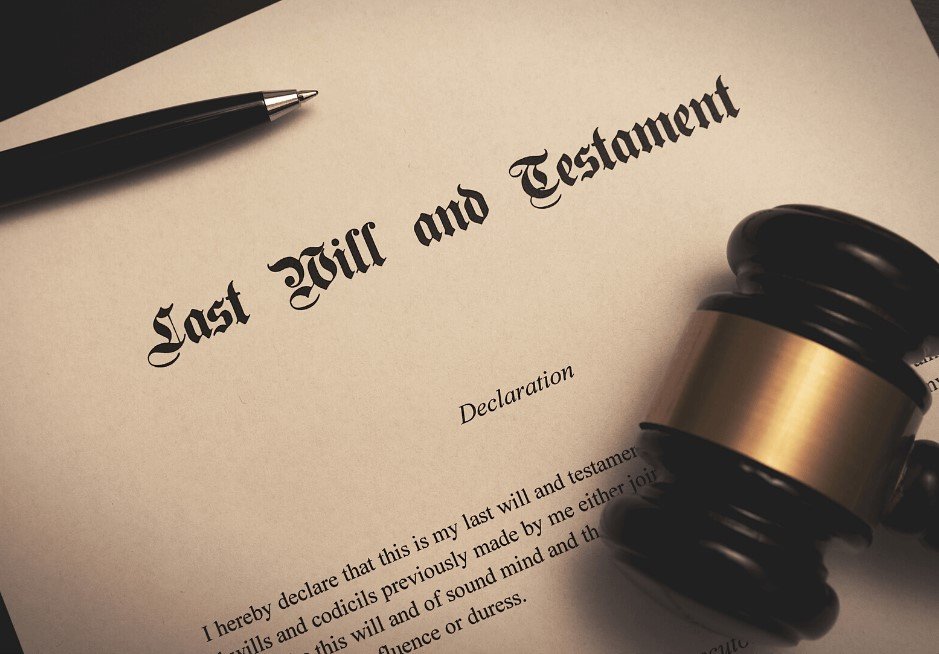Selling a House in Probate – Your Complete Guide
The passing of a loved one can be extremely difficult. Not only do you need time to grieve, but you may be tasked with settling their estate. If you have inherited a house from your parents, you have a lot to do and consider. Fortunately, specialists can help you through this stressful process and sell a house in probate fast.
Contents
What Is Probate?
Can The Bank Foreclose On a House In Probate?
What Is a Probate Sale And How Do You Sell a Property In Probate?
What Is Probate?
If you are the beneficiary of financial or physical assets from a deceased person, probate is a legal process where you can get those assets. The process can take a long time, depending on:
 The family relationships
The family relationships
 The decedent’s directions
The decedent’s directions
 The complexity of the estate
The complexity of the estate
If there is a will, the probate process may be simpler. Or, a judge may be able to convey the house to the beneficiaries even without a will. However, with no will present, probate can sometimes be the only way to assign legal ownership of the house in question.
The probate process varies from state to state. However, many states follow the “Uniform Probate Code.” In Washington, the law does not always require a probate proceeding, regardless of whether the decedent left a will.
What Happens To a House In Probate?
Different scenarios can affect a house in probate. Let’s say the decedent transferred their property to a family member via their will. In that case, the Executor/Executrix will have to carry out the wishes of the deceased in probate court in this process:
- The executor files a petition with the probate court.
- They get legal authority to access and administer the estate.
- The judge will deed the property to the decedent’s beneficiaries.
- The beneficiaries, usually the children or spouse, can choose to keep or sell the property.
If a will does not exist, a judge will name a family member as the executor. Sometimes, the executor will need to sell the house in probate. In this case, the executor typically have the following options:
- Prepare the house for the market and hire an Agent
- List the property For Sale By Owner
- Contact a local real estate Investor and sell the house directly to them
How Do You Value a House In Probate?

One of the challenging parts of selling a house is determining its worth. Before you can list the property for sale, you have to go through the personal items remaining inside. In a typical house sale, you can just pack everything up and put it in storage or elsewhere. With a house in probate, you first have to distribute any property to the heirs.
If there is no executor, then you must work with the other heirs to distribute the contents of the house. If you cannot agree, you may want to find and use a mediator. You may also have to take inventory of all the decedent’s property for the probate court.
Once you have distributed the important items, you may want to have an estate sale. An estate sale can be a way to make a little money off of the rest of the household items instead of throwing them away. With the house empty, you can prepare it for sale.
In the sale preparations, you may:
 Deep clean the house and pay for any necessary repairs.
Deep clean the house and pay for any necessary repairs.
 Sell the house as-is with no repairs or upgrades.
Sell the house as-is with no repairs or upgrades.
 Get someone to inspect the house and determine its condition.
Get someone to inspect the house and determine its condition.
After this, your real estate agent can help you set a price for the house by conducting a market analysis. You may overvalue your loved one’s home if you base the price on your gut feeling. An agent will help you estimate the market value of the house and weigh your tax liability.

Can The Bank Foreclose On a House In Probate?
The bank can foreclose on a house in probate when the executor does not make the mortgage payments. Sometimes you may forget, run out of money, or intentionally let the probate house go into foreclosure. As the personal representative of the estate, you must use the assets of the estate to stop foreclosure, or the court may hold you personally liable.
Some lenders will only work with a court-appointed representative to resolve the foreclosure. If you find yourself in this situation, you can:
- Talk to the lender and document your communication.
- Pay the overdue balance.
- Request an injunction to get time to sell the property or other assets.
How Long Does Probate Take?
The length of the probate process varies from state to state. Generally, the length of the process depends on:
 The size of the estate in probate
The size of the estate in probate
 The presence of a will
The presence of a will
 When you file for probate
When you file for probate
Depending on these factors, the process can take from six months to two years. Additionally, there is a window of time for filing for probate. You must wait a number of weeks after the death of the deceased before a court case is assigned. On the other hand, there is a limit to how long you can wait to file.
You could avoid having to sell a house in probate if the deceased established a revocable living trust for their assets. The trust prevents the estate from going through probate, and you won’t have to sell the house in probate court. With a trust, you get a more flexible timeline, so you won’t wonder, “Who will buy our probate house quick?”
What Is a Probate Sale And How Do You Sell a Property In Probate?
If you are looking for cash for a probate house fast, you want to find an experienced real estate agent to help you. You want a realtor with good connections, especially if the house needs upgrading before the estate sale. Unfortunately, the money to pay for home inspectors and contractors might be part of the estate.
In a probate sale, you may not be able to pay the vendors until after you sell a house in probate. Therefore, your realtor needs to know people who will work for potentially delayed pay. A probate house can be a big asset or a big liability. Either way, you want to sell the home as fast as possible.
When you inherit a house and wait a while to sell it, you could incur capital gains tax. If the proceeds from the estate do not cover the outstanding mortgage, you may have to go through a foreclosure. In addition to a real estate agent, you may also want to find a lawyer with experience navigating probate scenarios.
Can the Executor Sell a House That Is In Probate Without a Will?
You may want to sell a probate property when the deceased person has unpaid debts and not enough cash to pay them. Selling the home may be the only way to settle the estate. However, it can be difficult to determine who has the power to sell it. The people who can sell property in probate are:
![]() The court, when there are no immediate heirs to the property of the deceased
The court, when there are no immediate heirs to the property of the deceased
![]() The person named as the executor in the will
The person named as the executor in the will
![]() The person appointed by the court to administer and manage the estate (in the absence of a will)
The person appointed by the court to administer and manage the estate (in the absence of a will)
![]() The court, when no heirs want to administer the estate
The court, when no heirs want to administer the estate
If an heir inherits the home through probate, the house is no longer probate property. So, that heir can sell the home at their discretion. As an executor, you cannot sell the home or any part of the estate unless a probate court judge formally appointed you. If the property heirs cannot agree, the court may appoint a realtor as the person in charge of selling the property.
We Buy Houses In Probate
If you’re thinking, “ I must sell my house in probate. I just need someone to buy our probate house quick for cash,” consider working with an investor. Investors are faster alternatives to working with a realtor, and they don’t take commission fees from your profit. An investor can also help you get out of a foreclosure situation.
Sometimes, an inherited house is more of a burden than a blessing. Your family home may be extremely old, in bad condition, or gone without updates for decades. It’s hard to sell a home in bad condition. It can cost so much money to fix up the place and hire a realtor that the sale is not worth this hassle. Selling with an investor has the following benefits:
 You don’t have to list the property, market it, and negotiate with different buyers.
You don’t have to list the property, market it, and negotiate with different buyers.
 You’ll receive cash for your house instead of dealing with a bank loan regulations.
You’ll receive cash for your house instead of dealing with a bank loan regulations.
 The sale can close in less than 2 weeks.
The sale can close in less than 2 weeks.
 You can sell your house as it is without upgrading and repairing.
You can sell your house as it is without upgrading and repairing.
 You can avoid contingencies and uncertainties.
You can avoid contingencies and uncertainties.
 You can leave behind all the personal items the family no longer need.
You can leave behind all the personal items the family no longer need.
We buy probate houses quickly and easily so that you can worry about everything else involved with the death of your loved one. The probate process is difficult enough without spending years trying to get a property off of your hands. The back and forth of working with a real estate agent can become tricky, especially if you don’t live near the property in question. Selling to an investor means avoiding these issues.

